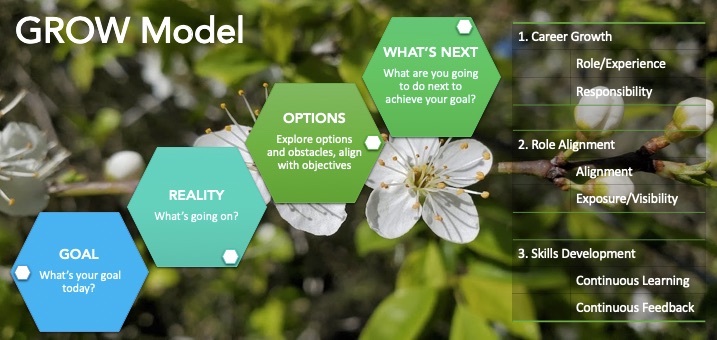
Let’s take a step back — 2020 has given us time to think about our actions and reflect on what truly matters.
When I think back about the past decade and my career growth, I am grateful to the amazing mentors and leaders who believed in me. It was always about the first interaction and conversation that helped me to know that I was in the right place at the right time.
Success is a loaded word. It can mean different things to different folks. I thought success was achieving the next goal I had set for myself. I was chasing the next dream every time, only to realize that success now has a new meaning. Since childhood, society had conditioned me to believe that if I got good grades, a good education and good jobs, that was all I needed to be successful.
In the past year, as I started to read more to learn how to be a good leader, I realized success for me meant bringing out the best in each other — whether it was my team members, other team members or other leaders. I enjoyed and gave my all when I knew we could collaborate together to achieve a new possibility. This made me happy, and it helped me build trust and credibility across the organization.
When I reflect on what helped me, two things come to mind: focus and focus.
Focus is not saying yes; it’s saying no to the hundreds of ideas. I am proud of everything we did and everything we didn’t do.
Steve Jobs
Product marketing is still being defined by the industry, and it became crucial for me to focus on key priorities. Two methods helped my team and me to stay focused:
1. GROW (Goal, Reality, Options, What’s Next) Conversations
The first time I learned about the GROW framework was in 2018 when I attended a Dell leadership training. Amazed by the clarity of the framework, I saw this as an opportunity to have a career growth conversation every quarter and not wait for the performance review at the end of the year.
My team was excited, and we had crucial conversations that wouldn’t have happened in our weekly one-to-one meetings. This created a dedicated space and time for us to brainstorm and work toward our career aspirations. We even color-coded our progress with red, yellow and green so that we were holding each other accountable. Our team members had career growth range from green to red, and I am proud of our team’s success in moving the red to yellow and yellow to green.
Most important for us was to remember that this was not just a career conversation within our team or company; it was also about working together to help each other achieve the next milestone in our careers — whether it was within or outside the team or company.
Below are a few questions to consider as you and your team members think about career growth.
Here is the GROW and personal OKRS template for reference.
- What is important for you in your career?
- Career Growth: Role/Experience | Responsibility
- Role Alignment: Cross functional Team Alignment | Exposure/Visibility
- Skills Development: Continuous Learning | Continuous Feedback
- What did you enjoy the most in previous roles?
- What did you dislike the most in previous roles?
- What type of work environment do you thrive?
- What type of work environment hurts your creativity and growth?
Now that you have a good understanding of what excites you, you can dive into a GROW conversation.
Personally, I wish I had learned about the GROW framework when I started my career, but it’s always better now than never, and I enjoy mentoring my team members through this process. Looking forward, I hope to help inspire many others in their career growth conversations.
- Goal: What do you want? What do success and happiness look like?
- Reality: Where are you now? What is holding you back from your career growth?
- Options: What could you do? What paths do you suggest to achieve this?
- What’s Next: What will you do? What actions will you take to meet your goal?
Personal objectives and key results (OKRs) are a great way to stay focused, committed and accountable to your career and life aspirations. Once your career aspirations are written down and shared with the world, you have already taken the first step to success.
2. Personal OKRs
I became fascinated by the simplicity of OKRs by listening to John Doerr’s TED Talk about how OKRs accelerated people’s life goals. Personal OKRs have given me the time and space to prioritize my time and effort toward things that truly matter.
When I was interviewed about the work-from-home era, it gave me time to think about how we should reimagine career growth and success and how talent acquisition would need to evolve to meet the new demands of the next generation working culture.
We, as leaders, have an opportunity to think about what changes we want to bring into the work culture and embrace transparency, trust and vulnerability so everyone feels safe and their voices are heard. Let’s work together with our teams, with principles like GROW and personal OKRs, to help them find true work-life balance every day.
“You can’t go back and change the beginning, but you can start where you are and change the ending.”
C.S. Lewis
Let’s create a new future together — one that we haven’t seen or imagined yet — and embrace uncertainty, be fearless and achieve the impossible.
Originally published at https://www.forbes.com.


